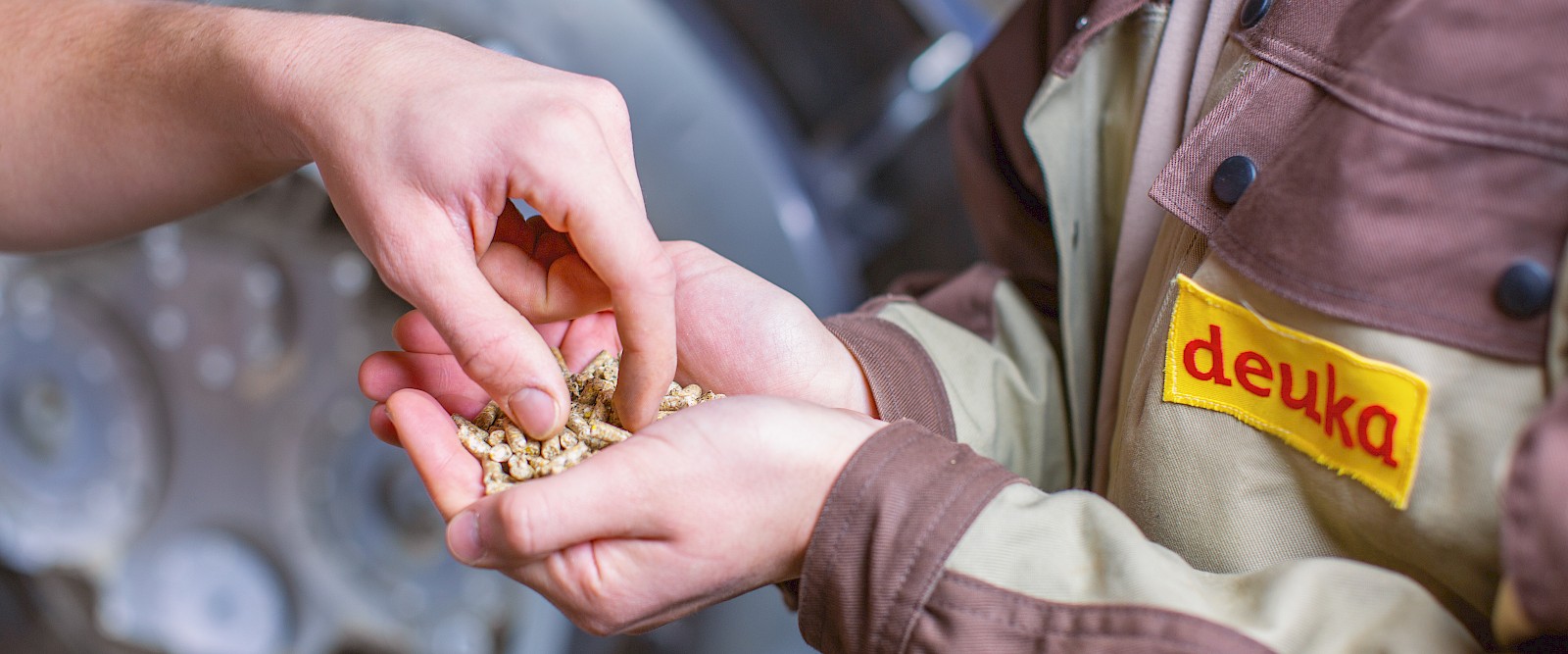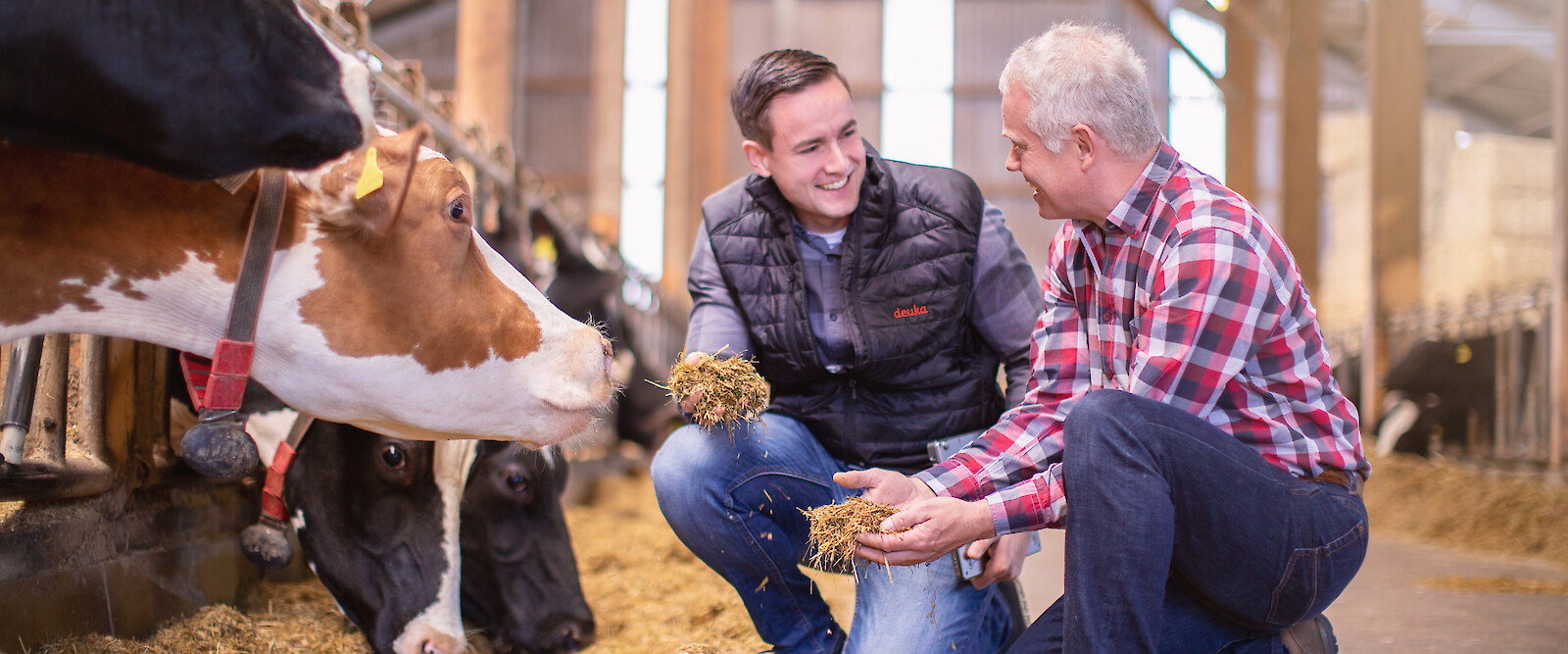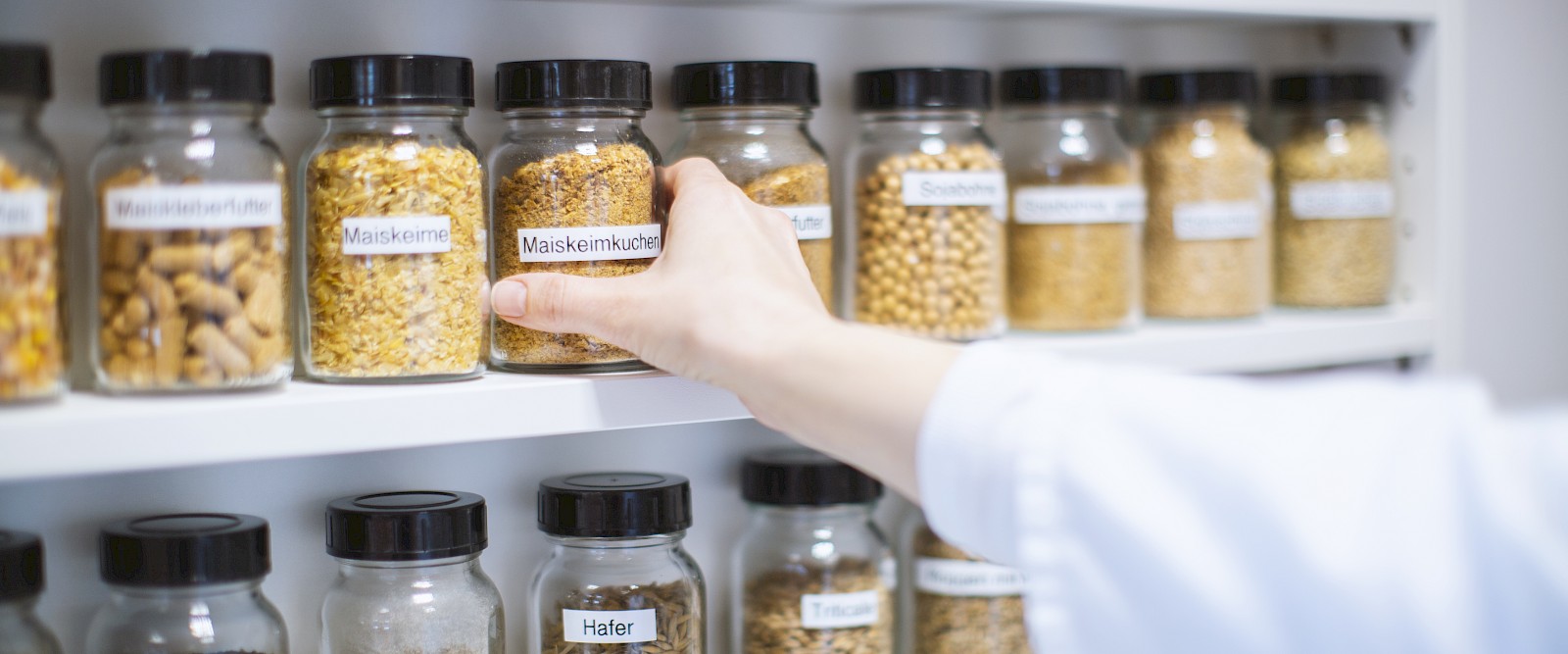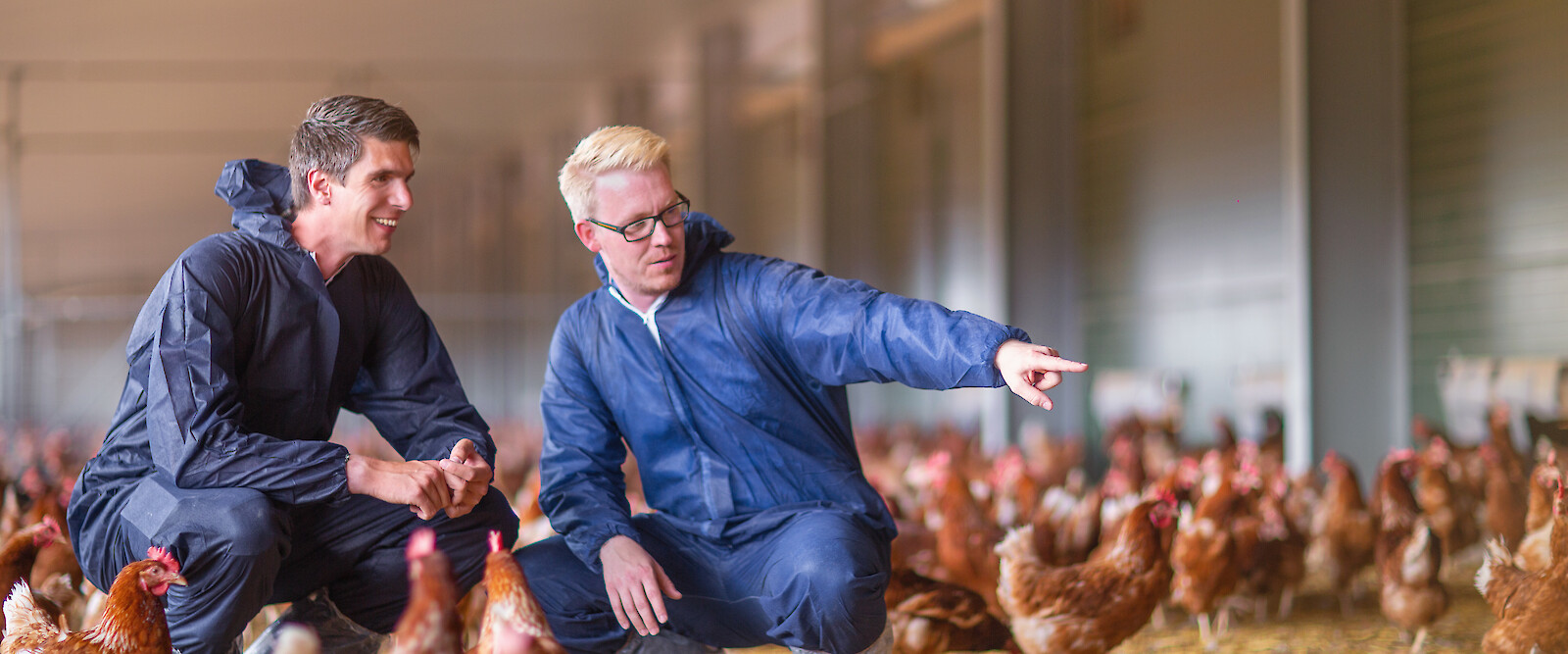Raw material and nutrient lexicon
Vitamin K
Vitamin K is a collective term for the vitamins K1 (phylloquinone), K2 (menaquinone) and K3 (menadione). Vitamin K is involved in the mineralisation of bones via the formation of the calcium transport protein osteocalcin and is responsible for the synthesis of various blood clotting factors (prothrombrin). Vitamin K deficiency can lead to blood clotting disorders, bleeding in various tissues and organs, and growth disorders. Vitamin K1 is mainly found in green plants. Cereals and beets, on the other hand, are low in vitamin K1. Vitamin K2 is produced microbially by bacteria in the forestomachs of ruminants and in the large intestine. Vitamin K3 is an industrially produced form. All vitamin K forms are metabolically converted into the particularly active menaquinone-4. Supplementing the feed with vitamin K according to need is done via the K3 form.






